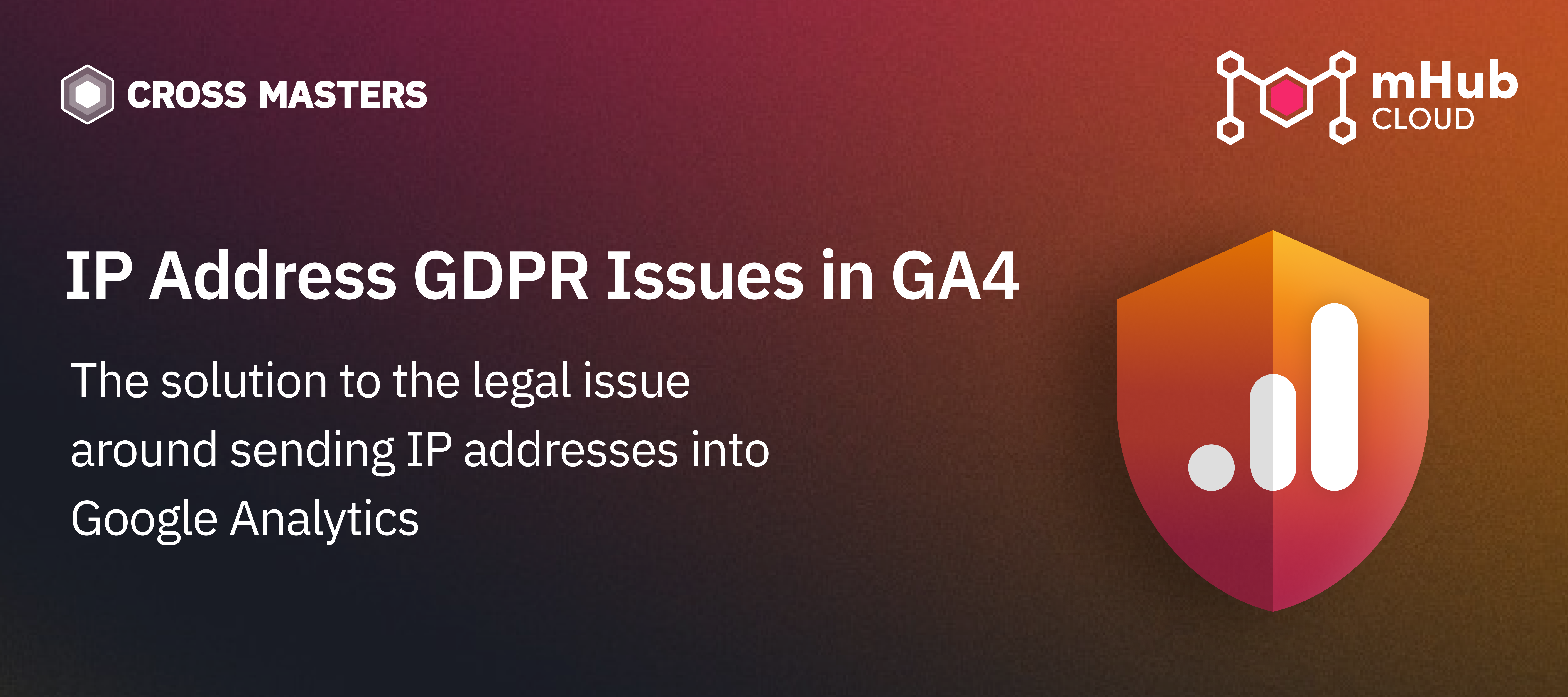IP Address GDPR Issues in Google Analytics
The solution to the legal issue around sending IP addresses into Google Analytics
Published: April 29th 2024 | 4 min read

The General Data Protection Regulation (GDPR) is a comprehensive data protection regulation implemented in the European Union (EU) in May 2018. Its primary aim is to safeguard the personal data and privacy rights of EU citizens. One of the areas affected by GDPR is the handling of IP addresses, which are unique identifiers assigned to devices connected to a network. This article explores the challenges faced by Google Analytics clients in relation to IP address handling and provides insights into the steps necessary to comply with GDPR requirements.
IP handling in Google Analytics
IP addresses play a crucial role in Google Analytics, as they provide valuable insights into user behavior and website traffic. For example, by analyzing IP addresses, website owners can identify the geographic location of their visitors. However, under GDPR, IP addresses are considered personal data as they can potentially be used to indirectly identify individuals.
GDPR introduced stringent guidelines on the processing of personal data, including IP addresses. According to GDPR, IP addresses are considered personally identifiable information (PII) if they can be linked to an individual. Consequently, organizations that use Google Analytics need to ensure they handle IP addresses in compliance with GDPR.
The search for a solution
Before GDPR, Google Analytics used to collect and store complete IP addresses by default, which became impossible in the wake of the regulation’s enactment. As a result, website owners had to find a solution that would enable them to continue using Google Analytics while respecting the privacy rights of users.
The journey towards a solution was influenced by the involvement of EU member state governments, whose data protection authorities issued guidelines for companies wishing to use Google Analytics in a GDPR-compliant manner. As an example, this article contains valuable insights about the position of the French government on the issue, which can serve as a reference point for a broader understanding of governmental approaches to the issue in European countries.
The French government’s main recommendation to website owners on the issue of IP addresses is to introduce proxies, which act as intermediaries between a user's device and the end platform, hiding the actual IP address of the user and replacing it with a different IP address. By utilizing proxies, website owners can obfuscate the user’s original IP address prior to sending data into Google Analytics, decreasing the likelihood that data can be directly linked to an individual.
Implementing proxies
To implement proxies for IP obfuscation in Google Analytics, website owners need to configure their websites to route incoming traffic through a proxy server. The proxy server will then handle the communication with Google Analytics, effectively masking the actual IP addresses of the users.
Utilizing proxies to obfuscate IP addresses in Google Analytics provides an additional layer of privacy protection for users. It helps ensure compliance with GDPR regulations and minimizes the risk of inadvertently collecting and storing personally identifiable information. However, implementing proxies may introduce complexities in the setup and configuration process, requiring technical expertise and potentially incurring additional costs. The easiest way to minimize such difficulties is to employ a dedicated solution such as mHub Cloud. mHub Cloud is a comprehensive tool allowing website owners to easily implement IP address masking for Google Analytics, while also making server-side tracking into many other platforms (Piano Analytics, Facebook, or Google Ads and many more) easy and accessible.
Conclusion
The GDPR regulations for IP address handling in Google Analytics are key for protecting user privacy. Utilizing an intermediary server or data handler is necessary to obfuscate IP addresses and ensure GDPR compliance. Implementing a solution like mHub Cloud can serve as an effective method for organizations seeking a reliable middleman for IP obfuscation in Google Analytics.
mHub Cloud offers a user-friendly interface and easy implementation process, allowing for the seamless routing of traffic between users' devices and Google Analytics while masking IP addresses. By leveraging solutions like mHub Cloud, organizations can enhance data protection, meet legal obligations, and build trust with users by prioritizing their privacy.
Implementing an intermediary server for IP obfuscation allows website owners to strike an optimal balance between leveraging insights from data analytics and protecting user privacy, creating a secure and trustworthy online experience for their users while adhering to GDPR guidelines.